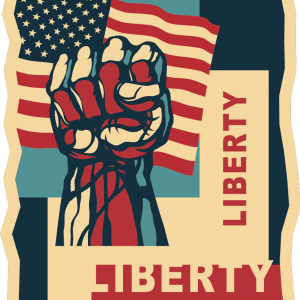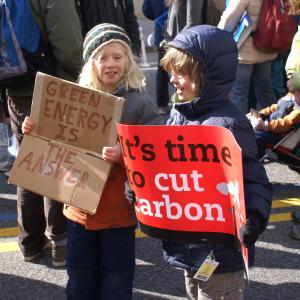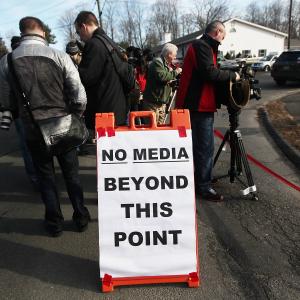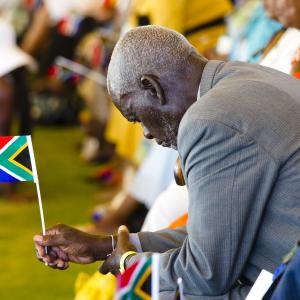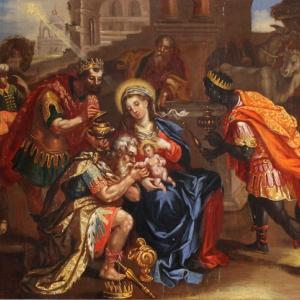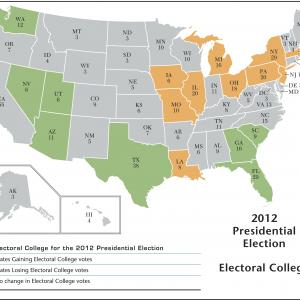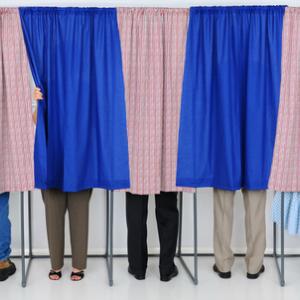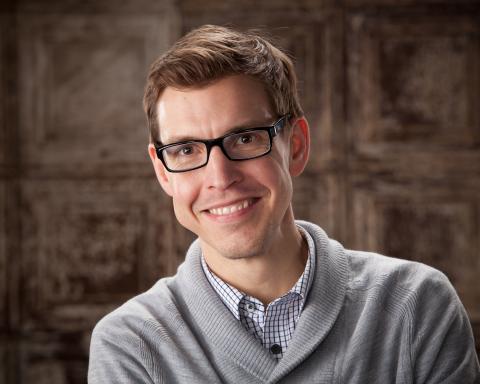
The Rev. Brian E. Konkol serves as Chaplain of the College at Gustavus Adolphus College. Through the Office of the Chaplains, he is responsible for accompanying the Gustavus community by integrating faith and spirituality into the fullness of learning and life.
Konkol is originally from Amherst Junction, WI, and is a graduate of Amherst High School (1997). He completed a Bachelor of Science degree in Criminal Justice (2001) from Viterbo University (La Crosse, WI), in addition to a Master of Divinity from Luther Seminary (St. Paul, MN), and was ordained with the Evangelical Lutheran Church in America (ELCA) in 2005.
Posts By This Author
Boston, Bombs, and the Scandal of God’s Criminal Justice
I am tormented by what took place at the Boston Marathon. An iconic event that is supposed to be a celebration of achievement and companionship will be scarred with memories of injury and death for years to come. However, the source of my distress is not only the horrific sights and sounds of violence and terror, but in such dreadful disasters I also struggle with our common conceptions of a loving God. As many wonder where God was in the midst of such tragedy, and while others question why God did not (or could not) prevent such terror from taking place, I am personally tormented with my belief of where God's love will be placed in its aftermath.
On the one hand, we are told “blessed are those who mourn, for they will be comforted” (Matthew 5: 4), and in receiving the Gospel in such ways, we take comfort in the belief that God is with those who suffer and directly at the side of those who struggle. This conception of a loving God offers relief for the victims in Boston and all those on the receiving end of transgression. However, while we proclaim a God in solidarity alongside those in pain, we are also often told that God is present with those who cause the pain, for the love and forgiveness found in Jesus is inclusive, it has no boundaries, and nothing is able to “separate us from the love of God in Christ Jesus our Lord” (Romans 8:38-39). So just as Jesus was sent to soothe those who suffer, he also absolves those responsible for the suffering. As a result, we are left with a God who seems to love both saints and sinners, which means we are both comforted and confronted in the aftermath of tragedy in Boston.
Gender, Sex, and a Trans-Inclusive Common Good
I am privileged to have a body that fits my gender, and for the majority of my life I was unaware of this ingrained and assumed personal and public privilege. As is the case with many in our world, during my adolescent years I never realized that “gender” and “sex” were two different aspects of my male identity, or in the words of Virginia Prince, I was unaware that “… gender is what’s above the neck and sex is what’s below the neck.” In light of these often ignored differences between gender and sex, I have come to recognize that many in our world do not experience full harmony between the two, and the result is a significantly misunderstood and strikingly marginalized transsexual and transgendered community.
While the differences between gender and sex are complicated, and the various distinctions between cultural and biological identity constructs are ongoing, The National Center for Transgender Equality estimates that 1 percent of all U.S. citizens are “trans.” However, as gender variance is rarely discussed in mainstream society, it would appear that far too many continue to make false generalizations based upon sensationalized media accounts of cross-dressing and transsexuality. As stated by Deborah Rudacille in The Riddle of Gender: Science, Activism, and Transgender Rights:
Gender variance still seems to be considered a more suitable topic for late-night talk show jokes than for journals of public health and public policy, even though a recent needs assessment survey in Washington, D.C., estimated that the median life expectancy of a transgendered person in the nation’s capitol is only thirty-seven years … Though many are far better off materially that the subjects of the Washington, D.C., study, transgendered and transsexual people of every social class and at every income level share many of the same vulnerabilities. Public prejudices make it difficult for visibly transgendered or transsexual people to gain an education, employment, housing, or health care, and acute gender dysphoria leaves people at high risk for drug abuse, depression, and suicide.
Palm Sunday, War in Iraq, and Our Resistance to Mass Manipulation
On Palm Sunday many will hear the Gospel of Luke’s perspective surrounding Jesus’ celebrated entry into Jerusalem (Luke 19:28-40). In hearing this well-known portion of the New Testament, we are often led to wonder how the same crowds that so graciously and enthusiastically welcomed Jesus would passionately and viciously call for his death just a few days later. In trying to comprehend the sudden and significant shift in public opinion, we recognize that the crowds did not swing their support independently, but rather, they were acting under the influential push of propaganda.
As Luke’s Gospel reminds us, in between Jesus’ entry into Jerusalem and the calls for his crucifixion, the “chief priests and the scribes” plotted to put Jesus to death (22:2). As these powerful elites were “afraid of the people”, they conspired in a power-protecting push to have Jesus humiliated, tortured, and brutally killed. And so, while Luke’s Gospel does not provide exact details into the strategies of the chief priests and scribes, their motivations appear to be clear, as they, and others within the ruling class, perceived Jesus as a risk and thus needed to ensure his quick and clear elimination. As a result, due to the influential influx of propaganda, combined with an overly complicit public, just a short time after Jesus was welcomed as a king he was sentenced to death as a criminal.
Luke 15:11-32, Migration, and our Prodigal Public
The human community exists in perpetual motion; migration is a constant feature of our local and global reality. According to the International Organization for Migration, the total of international migrants increased from an estimated 150 million in 2000 to about 214 million in 2010, and the number of internal migrants (those who move within the borders of a given country) is about 750 million. These relocations are often related to the harsh consequences of war, environmental destruction, and economic downturn. As a result, those engaged in migration often do so for the sake of safety and opportunity, yet these potential rewards are sought in spite of deep personal and financial risk.
While the rates appear to be on the rise, the phenomenon as a whole is by no means exclusive to the present. The New Testament passage often known as “The Parable of the Prodigal Son” includes some of the harsh realities that are often associated with migration. One can examine this well-known parable through the lenses of migration, and in doing so, we are given insights in how to more faithfully extend hospitality to such strangers.
As Luke’s Gospel (15:11-32) reminds us, the youngest of two sons asked for an early inheritance from his father, received it, and then traveled to a “distant country” where he “… squandered his property in dissolute living.” As the term “dissolute” typically intends to describe degenerate and/or sinful behavior, we often conclude that the youngest son was deeply immersed in immorality, thus we find it difficult to feel sympathy when he later falls into the depths of poverty. We tend to perceive the prodigal son as someone who got what he deserved, for as the parable seems to illustrate, not only did he waste the inheritance received from his father, but he did so through sinful choices that brought deep dishonor to his family.
A Lenten Commitment to Give Up the Fear of Failure
If one were to conduct a nationwide survey to learn the most common human fears, it is safe to conclude thatfailure would be near the top of the list. Due in part to the high value that North American society places upon success and achievement, we recognize through the twists and turns of daily life that everyone has – in some shape or form – firsthand experience of the fear of failure. We fret over falling short, we agonize about disappointment, and we even lose sleep from the potential shame of letting others down.
What if we, as a Lenten discipline, make a commitment to give up the fear of failure — for such fears are too often personally devastating and publicly debilitating if left ignored or unresolved?
Climate Rallies and a Golfing President
This past Sunday an estimated 35,000 people gathered in Washington, D.C., to push for legislative action in response to climate change. In addition to speaking out against the proposed Keystone XL pipeline, the “Forward on Climate” rally organizers urged President Barack Obama to limit U.S. greenhouse gas emissions and transition to larger levels of renewable energy. In addition to the mass assembly near the White House, environmental groups held similar rallies in cities across the nation, including a significant turnout in Los Angeles. All together, some have described the events of the past weekend as the largest collection of climate change rallies in U.S. history.
The president has recently emerged as a potentially strong ally in the struggle against climate change, for his inaugural address included a renewed commitment to environmental leadership, as he stated: "We will respond to the threat of climate change knowing that the failure to do so would betray our children and future generations.”
President Obama also addressed ecological concerns during his State of the Union speech, as he said: “We can choose to believe that Superstorm Sandy, and the most severe drought in decades, and the worst wildfires some states have ever seen were all just a freak coincidence. Or we can choose to believe in the overwhelming judgment of science – and act before it's too late." While conversation surrounding climate change was notably absent during his recent re-election campaign, the president appears to be making environmental concerns a top priority for his second term of office.
While President Obama seems to be a more visible environmental advocate, many are doubtful of his sincerity and question whether such statements are motivated by political calculation rather than genuine policy priorities. For example, in what can be described as a thought-provoking twist of irony, while thousands marched past the White House to move the president “Forward on Climate,” he was out golfing, which just so happens to be a sport that many environmentalists perceive as an ecological tragedy.
Climate Change: An Opportunity to Act
In contrast to the ongoing public and political debate surrounding the legitimacy and urgency of climate change, the global scientific body of knowledge appears to be overwhelmingly clear, as highlighted in The Great Disruption by Paul Gilding:
"The consensus position on climate change is reflected in the rigorously peer-reviewed journals in which research is presented and issues are debated. One study by Naomi Oreskes, published in the journalScience, demonstrated that of the papers whose abstract contained the keywords global climate changebetween 1993 and 2003, none questioned the consensus position – not one. Oreskes’s subsequent book,Merchants of Doubt, revealed how many who once fronted the tobacco industry’s anti-science campaign to deny the link between smoking and lung cancer are also now prominent and vocal climate change skeptics, and they are often funded to create doubt that has no credible scientific basis."
An Alternative to American Apartheid
When Frederick Douglas assembled with other representatives at the National Colored Convention of 1853, they collectively condemned the nationwide epidemic of racial discrimination. As the gathering intended to discuss the circumstances and possibilities of “coloreds” (as they were called then), they recognized the various ways that “scorn and contempt” were heaped upon them — for no justifiable reason — by the white-skinned racial majority.
In remembrance of Douglas’ critique surrounding his 19th century “white countrymen,” and in recognition of our annual celebration of Black History Month, we in the U.S. continue to mourn the deep divisions that occur due to racial misunderstanding. In other words, as we take an inventory of race relations roughly 195 years after Frederick Douglas was born, we recognize that racial ignorance among far too many of our citizens continues to result in a disturbing level of collective indifference and social inequality.
In Search of The Real World
This is the true story... of seven strangers... picked to live in a house...work together and have their lives taped... to find out what happens... when people stop being polite... and start getting real... The Real World.
The Real World was – and continues to be – a popular television show, and its influence is far greater than its core MTV viewing audience. Through its collection of diverse personalities and with a willingness to address controversial social issues, when The Real World first aired in May of 1992 it started what many would describe as our modern-day reality TV phenomenon. Not only did The Real World spark a new entertainment genre, but its impact was far greater, for it helped blur the lines between authentic and artificial. In other words, one can argue that The Real World sparked an ongoing transformation of what we perceive as real in our world.
As is the case with other reality TV shows, The Real World has received numerous allegations of being simulated and/or staged. Due to such accusations, some viewers are not convinced that The Real World is fully real. Some accuse MTV of shoddy and selective editorial choices that take events out of context, and as a result, give false impressions of what actually occurred in real time. And of course, some perceive the very concept of The Real World as a grand misnomer, for in the real world people do not live like those in The Real World, as few in our world can claim to live in cost-free luxurious dwellings in awesome cities under the watchful eye of camera crews who broadcast their daily actions for millions of viewers to see and scrutinize. For many, The Real World does not seem real at all.
A Convenient Truth: I Am White
Editor's Note: This column is part of a duo of posts commenting on racial reconciliation in light of Martin Luther King, Jr. Day. Read the accompanying piece, "An Inconvenient Truth: I Am Black."
I am white. It is quite convenient to be white. In fact, it has always been convenient to be white in the United States of America.
According to the U.S. Census Bureau, I am more likely to be employed than someone who is not white, I am less likely to be incarcerated, I am more likely to be covered by health insurance, and I am more likely to enjoy a comfortable retirement and eventually die peacefully in my elder years. I am more likely have a college education than a non-white person, my (white) wife is more likely to receive excellent medical care, my (white) children are more likely to attend private schools with skilled teachers, and my (white) family is more likely to have a roof over our heads, a few cars in the garage, and more than enough food on our table.
While individual cases vary, to be white is – generally speaking – a convenient truth.
There are countless factors one could cite for the current levels of race-based inequality in the U.S., and many opinions exist surrounding potential solutions, yet there are three points of emphasis that need to be addressed for the advancement of racial reconciliation.
A New Year of Opportunity: Let us Begin
As common language in the U.S. is filled with references to time, it shows how much we value (and sometimes obsess!) over so-called “time management.” For example, many in the U.S. believe time can be "on," "kept," "filled," "saved," "used," "spent," "wasted," "lost," "gained," "planned," "given," "made the most of," or even "killed." We recognize that many fail to manage their time by allowing time to manage them, or as William Penn once remarked, “Time is what we want most, but what we use worst.” And so, as we turn our calendars from 2012 to 2013, we recognize the need to reflect upon our usage and value of time, for too often we place our plans as a higher priority than other people.
As we consider the dawning of a new year, many will reflect upon events of the past, take inventory of the present, and make numerous resolutions for the future. In doing so, we recognize that the Bible is an excellent resource for such undertakings, as it points us toward a faithful and fruitful use of the time God has given to us, as is written in Ecclesiastes 3, “For everything there is a season, and a time for every matter under heaven …”
Christmas Confrontation with a Homeless Jesus
When asked to identify common features of the historical Christmas storyline, many speak of Mary, Joseph, shepherds, wise men, angels, King Herod, and of course, the newborn Jesus. But we too often fail to recognize the social circumstances in which Jesus was born; our understanding of the nativity narrative is too often left incomplete.
In the midst of our various congregational and community Christmas celebrations, we are confronted with the harsh reality that Jesus was brought into the world within a condition of homelessness. As a result, one can argue that we cannot fully commemorate Christmas without recognizing its social setting, for the context of Jesus’ birth points us toward the content and concerns of Jesus’ life.
Grieving With or Gawking At: A Response to Responses of Tragedy
In the time following our latest national tragedy in Newtown, Conn., many have wondered where God was in the midst of these horrific events. While such questions are indeed significant and deserve extended consideration (and thankfully, many have already addressed the subject), instead of wondering where God was, perhaps the time is upon us to also consider where we are.
While it is imperative to contemplate and debate the role and presence of God during such catastrophes, it is also critical to consider our collective response as a human community.
We often learn of tragic events through the lenses of news media, and of course, the various outlets possess mixed motives and results. While there is nothing inherently wrong with sharing the stories, there is fine line between seeking facts and invading privacy, and this boundary is too often crossed. In the hours immediately following the recent shootings in Connecticut, countless camera crews, photographers, and reporters crowded around devastated children and traumatized families. While some merely wished to share information and build awareness, others seemed to be more interested in ratings and profit. And so, while the debates surrounding media ethics in the aftermath of tragedy will surely continue, most would agree that even the most sensitive of camera crews, photographers, and reporters do not always create the most ideal setting for those enduring tragedy. For the sake of those who experience loss in the most heartbreaking of circumstances, we should demand something better.
Advent: In Anticipation of Reconciliation
Instead of celebrating a victory in war or recognizing the founding of an armed unit, South Africa renamed Dec. 16 as “The Day of Reconciliation” for the purpose of transformation, empowerment, and multi-racial national unity. In what can now be described as a dramatic conversion of symbolism, the newly redefined public holiday was celebrated for the first time in 1995.
The Day of Reconciliation is appropriately placed within the Christian liturgical season of Advent, for this period of expectation and longing for Jesus’ birth is a reminder of the ways that God’s presence heals wounds and redefines relationships. As the people of South Africa renovated their national holiday to embrace a transformed national identity, the Season of Advent prepares us to be made new through the birth of Jesus, and thus moves us to promote restored local and global communities through the practice of radical hospitality, as is written in 2 Corinthians 5:19: “God was in Christ, reconciling the world to himself, and entrusting to us the ministry of reconciliation."
Christmas Wisdom: Follow the Star for Foreign Policy
One of the most fresh and challenging interpretations surrounding the Christmas narrative was produced by South Africa’s renowned theologian, the late Steve de Gruchy. In regards to the Magi and their visit with Joseph, Mary, and the newly born Jesus in Matthew 2: 1-12, de Gruchy offers a striking proposal surrounding the biblical text and its direct relationship with cooperative efforts between those in the so-called global north and south.
...
Among other things, a key insight into this portion of the Christmas narrative is that God is revealed through the vulnerability of poverty and marginalization. The main characters of the Christmas plot are not wealthy and prosperous high-rollers, but the downtrodden and vulnerable poor who stand as deliberate reminders of how God is in solidarity with those who are too often forgotten and oppressed. If Mary and Joseph were people of wealth and privilege, they surely would have received room at the inn, yet God shows an alternative to the common hierarchies of status in our world, and such pushed-aside people are given highest priority as the bearers of Christ.
A Season of Urgent Patience
On the morning of Nov. 7, just hours after polling places closed and as votes continued to be counted, the national attention seemed to simultaneously switch from projected winners to the issues that deserved immediate attention. Instead of speculation surrounding which candidates may emerge victorious, many expressed the need for swift action on climate change, job creation, and education reform. The meticulous analysis of exit polls was abruptly replaced with calls for change surrounding immigration, taxes, and sustainable peace in the Middle East. Wwithin moments of receiving the news of Election Day winners, the general public swiftly switched its collective attention to matters of the immediate future.
In light of the various challenges facing our national and global community, there are indeed numerous issues that require the immediate attention of our elected officials. And our newly re-elected president, as well as others placed into public service, should be called upon for genuine cooperation, fair action, and immediate impact.
But while urgency is required in light of pressing concerns, an overindulgence of immediacy also contains a long list of shortcomings. Discipline and patience are required to bring forth intellectual depth, balanced consideration, and lasting compassion. As humans are more inclined to favor short-term over long-term rewards, the virtue of patience should be appreciated for its many worthwhile benefits.
A Search for Self in a Season of Stuff
Once there was a crowd of about 2,000 shoppers gathered for the early morning opening of a local Wal-Mart.
It was the morning after Thanksgiving Day in Valley Stream, New York, an occasion commonly known as “Black Friday” throughout the United States.
As the opening hour of operation approached, the crowd grew quickly in size, but it also increased with anxiety and anger, as many had waited throughout the cold and dark night, some as long as eight hours. The masses were more than ready to move into the warmth, brightness, and seasonal buying bliss of their neighborhood Wal-Mart.
When the store manager finally unlocked the front entrance, the massive and eager crowd erupted with energy and passionately pushed into the store like a tidal wave. In doing so, through the sheer physical force of mass purchasing power, the swarm of shoppers broke through – and eventually broke down – the Wal-Mart doors.
Graduation Day for the Electoral College
The United States is the only democratic country in the world where a candidate can be elected as president without earning the highest number of votes.
In the midst of competing campaigns and critical choices leading up to Election Day, one of the most common assumptions is that U.S. citizens directly select their president. However, far too many fail to fully understand that such direct selection is not our reality, for within our complex electoral system – known as the Electoral College – the will of the people does not always translate into final results. During the presidential elections of 1876, 1888, and 2000, the leader in popular votes did not claim victory, and some believe a similar scenario may take place in the near future. And so, when a candidate receives the majority of votes but is not sworn into office, we recognize a gross injustice that requires immediate and significant transformation.
Accompanied by Nones
It was December of 2000, but I remember the occasion as if it were yesterday.
It was a few days after Christmas during my senior year of college. I was quite nervous, and I wondered how my friends and family would react.
How would my basketball teammates respond? Would my roommates treat me differently? And of course, what about my girlfriend? She had no idea our relationship would take such a dramatic turn.
I could hide no longer. I had to be honest with who I was. And so, after a great deal of delay and long nights of nervous planning, I finally decided to share what I had been keeping secret.
Beginning with my girlfriend, then my parents, brother, sister, and eventually friends, roommates, and teammates, I shared the news: After a significant amount of prayer and discernment, I was no longer planning to attend law school following college graduation, but instead, I wanted to attend seminary in order to become an ordained Lutheran pastor.
As to be expected, I received mixed reactions.
My parents were confused and surprised, as they – like most people – had not perceived me as “religious”," especially not to the point of pursuing ordination. Nevertheless, they accepted the news with delight and affirmation.
In addition, my girlfriend (who is now my wife) was wonderfully supportive. So was my brother, sister, and closest friends.
On the other hand, some others were not sure how to react. My friends – mostly uninterested in religion – wondered about future plans. Basketball teammates were a bit uneasy. And even the campus priest and a few professors had an assortment of reactions. While a number of people were anxious and apprehensive, those within my closest circle of friends accepted the announcement with open arms.
I continue to thank God for such a wonderful web of support.
Give Us This Day Our Daily Vote
In a few weeks citizens will choose who serves as president of the United States. As many from all sides of the political spectrum have already recognized, the nationwide decision of Nov. 6 will affect the direction of 50 states – as well as the international community – for generations to come.
Since the opposing candidates offer contrasting views for the future, the choice is indeed critical, thus all are encouraged to listen openly and attentively, critique the various policy positions carefully, and when the first Tuesday of November arrives, make an informed choice for the collective benefit of our global common good.
While one should affirm and appreciate the importance of Election Day, we should also recognize and appreciate our ability to shape society far more frequently than once every four years. While several years pass between presidential elections, we vote for the collective benefit of our global common good on numerous occasions with each passing day.


